Hot Cisco Certifications
All Cisco Exams
Cisco Training Guide
Cisco is a leading networking company based in California that has been around since 1984. Its core purpose is to develop and manufacture networking equipment, and then sell them to companies and institutions around the world. Based on this, Cisco has undertaken a thorough initiative to train professionals that will be involved in this process, beginning with development of equipment all the way to installing and running of these networking systems.
Preparation of individuals involves course training and administering of qualifying tests. Qualified individuals are then issued with relevant certifications. There are five levels of certifications. There is also a latest certification called architect. Let’s have a look at what each certification level entails.
- Entry level certifications
- Associate Level
- Professional Level
- Expert Level
- Architect Level
This is a starting point for anyone seeking an entry in to the associate level. They are two of them here. Cisco Certified Entry Level Technician (CCENT ICND1) and Cisco Certified Technician (CCT). CCT is further divided in to CCT Data Center and CCT Routing and Switching. Once you qualify at this level, you will be able to install, run and troubleshoot the security system of a small enterprise.
The certifications include CCDA, CCENT (ICND2), CCNA Cloud, CCNA Collaboration, CCNA Data Center, CCNA Industrial, CCNA Routing and Switching, CCNA Security, CCNA Service Provider and CCNA Wireless. Attaining any of these certifications, would then help you to proceed to the professional level.
Involves advanced networking knowledge and skills. Certifications include CCDP, CCNP Cloud, CCNP Collaboration, CCNP Data Center, CCNP Routing and Switching, CCNP Security, CCNP Service Provider and CCNP Wireless. Any of these certifications connects you the expert level certification.
This is a senior level professional certification. They are CCDE, CCIE Collaboration, CCIE Data Center, CCIE Security, CCIE Service Provider, CCIE Wireless and CCIE Routing and Switching. Attaining any of these certifications comes with a number of privileges and benefits like a badge, a personalized plaque and a resource document.
Being the highest level Cisco professional, an architect is majorly involved with the networking details of enterprise objectives. A Cisco CCDE certification is a prerequisite. Also a thorough knowledge of network infrastructure is a must. Once qualified, you become a Cisco Certified Architect (CCAr).
Covering the top Cisco Certification Exam Dumps & Practice test Questions for in-demand certifications for candidates to study and pass. 100% Latest & Updated Cisco Questions & Verified Answers by IT experts, make passing the exams easy and save a lot of time for candidates to avoid the risk of seeing unknown questions in the exam. Cisco Certification Training Courses, Exam Dumps & Practice Test Questions have been uploaded by users, IT experts to help community and making sure that everyone is informed about the latest exam updates.
Cisco Certification Notes
Cisco is a leading networking company based in California that has been around since 1984. Its core purpose is to develop and manufacture networking equipment, and then sell them to companies and institutions around the world. Based on this, Cisco has undertaken a thorough initiative to train professionals that will be involved in this process, beginning with development of equipment all the way to installing and running of these networking systems.
Preparation of individuals involves course training and administering of qualifying tests. Qualified individuals are then issued with relevant certifications. There are five levels of certifications. There is also a latest certification called architect. Let’s have a look at what each certification level entails.
- Entry level certifications
- Associate Level
- Professional Level
- Expert Level
- Architect Level
This is a starting point for anyone seeking an entry in to the associate level. They are two of them here. Cisco Certified Entry Level Technician (CCENT ICND1) and Cisco Certified Technician (CCT). CCT is further divided in to CCT Data Center and CCT Routing and Switching. Once you qualify at this level, you will be able to install, run and troubleshoot the security system of a small enterprise.
The certifications include CCDA, CCENT (ICND2), CCNA Cloud, CCNA Collaboration, CCNA Data Center, CCNA Industrial, CCNA Routing and Switching, CCNA Security, CCNA Service Provider and CCNA Wireless. Attaining any of these certifications, would then help you to proceed to the professional level.
Involves advanced networking knowledge and skills. Certifications include CCDP, CCNP Cloud, CCNP Collaboration, CCNP Data Center, CCNP Routing and Switching, CCNP Security, CCNP Service Provider and CCNP Wireless. Any of these certifications connects you the expert level certification.
This is a senior level professional certification. They are CCDE, CCIE Collaboration, CCIE Data Center, CCIE Security, CCIE Service Provider, CCIE Wireless and CCIE Routing and Switching. Attaining any of these certifications comes with a number of privileges and benefits like a badge, a personalized plaque and a resource document.
Being the highest level Cisco professional, an architect is majorly involved with the networking details of enterprise objectives. A Cisco CCDE certification is a prerequisite. Also a thorough knowledge of network infrastructure is a must. Once qualified, you become a Cisco Certified Architect (CCAr).












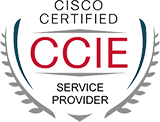
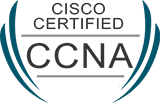
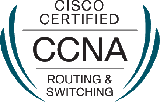
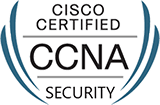
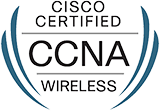

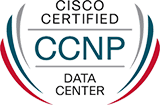

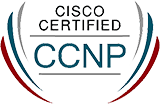
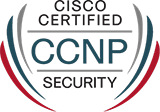
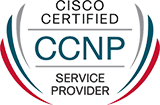





Comments * The most recent comment are at the top